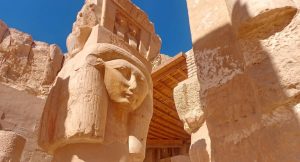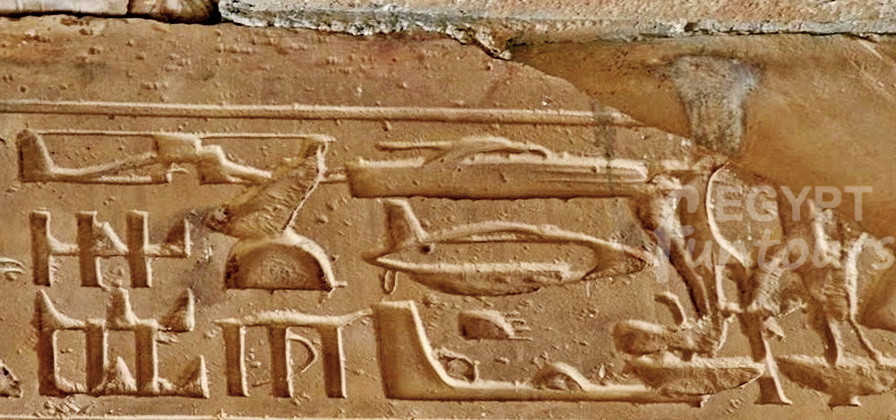
Discover the wonders of Egypt
Ancient Egypt represents one of those mysterious civilizations that, in their time, existed along the Nile River and survived for more than three millennia. Additionally, it is famous for its incredible achievements in art, building, and control. Certainly, Ancient Egypt has been some kind of hypnotic spell from scholars’ and enthusiasts’ points of view. Further, this section will elaborate on the basic features of Ancient Egyptian civilization: history, society, religion, and a few wonders it gave to humanity.

It is conventional to divide Ancient Egypt into several periods: Prehistoric Era, Early Dynastic Period, Old Kingdom, Middle Kingdom, New Kingdom, and Late Period.

Ancient Egyptian society was thoroughly hierarchical, divided into classes that defined their place in society. Firstly, within this social pyramid came the pharaoh; Secondly, the class of the nobility, priests, and government officials. Thirdly, the largest part of the population comprised farmers, laborers, and artisans.
Writing and Education: The invention of hieroglyphics was an elaborate system that contained elements of logographic and alphabetic writing. Thus, the educated scribes who could use that complex form of writing played a vital role in administration and record-keeping.
Art and Architecture: The Ancient Egyptians are one of the most impressive artistic civilizations; from intricately carved statues to wall paintings, from grand temples to tombs. Their artworks strongly connected religious beliefs, thus, depicting scenes of daily life, mythology, and the afterlife.

Religion dominated the pattern of life in Ancient Egypt. The Egyptians were monotheistic, developing numerous deities that personified the features of one great god, nature, and society. Some major deities include:
The afterlife was the central belief in Egyptian civilization. So, to protect the body for its journey into the afterlife, the ancient Egyptians paid too much effort and detailed attention to elaborate burials, which entailed mummification. Therefore, this is further evident in the building of monumental tombs, for example, the Valley of the Kings.

There were many contributions to human civilization from Ancient Egypt that continued even up to the present:
The higher concept of mathematics and the engineering technique developed by the Egyptians helped them construct the monumental structure of pyramids.
Ancient Egyptians practiced medicines, which were partly based on practical knowledge but at the same time included spiritual beliefs. Furthermore, they developed surgical techniques and documented medical practices on papyrus scrolls.
They learned the positions of stars and were even able to devise a calendar based upon the cycles of both the moon and the sun, a necessary task for agricultural planning and the planning of religious festivals.
Certainly, Ancient Egypt’s great literary achievement is religious texts, poems, and stories, which have given quite a bit of valuable insight into their society and worldview.
Ancient Egypt is a spectacular wonder and a testament to human ingenuity and creativity. The great civilization, full of mystery and intricate society with deep religious convictions, set a mark on the world that will last forever. As we continue to unravel the secrets of this great civilization, so, too, do we build upon the comprehension of our past and an appreciation for the enduring legacy that Ancient Egypt had in shaping human culture and civilization.
How far in advance should I book my tour? We recommend booking as early as possible, especially for peak seasons, to ensure availability and secure the best price. Many tours can be booked up to 12 months in advance.
What is the typical group size for your tours? Our Top speciality is Private Tours. As for groups, group size vary by tour, but we generally keep them small to ensure a personal and high-quality experience. The average is typically between 10-16 guests.
Are your tours private or shared group tours? We offer a mix of both. You can find this information clearly indicated on each individual tour page. Group tours are marked as such, and private options are always available.
How do I know if a specific departure date is available? For Private Tours, you do not need to, as they are available everyday. For group tours, you need to contact us.
What is included in the tour price? Inclusions vary per tour but often cover accommodation, transportation, professional guiding, and certain meals/activities & entrance fees. Detailed inclusions are listed on the itinerary section of each tour page.
Do I need to pay a deposit, and what payment methods do you accept? Yes, a deposit (25%) is required to confirm your booking. We accept major credit/debit cards (Visa, Mastercard, etc.) and bank transfers. Full details are in our Terms and Conditions.
Are there any hidden fees or surcharges? No. The price listed on the tour page is the final price, which is inclusive of all mandatory local taxes and fees. Any optional extras will be clearly noted.
What is your cancellation and refund policy? Our policy is clearly detailed in our Terms & Conditions. The amount refunded depends on how far in advance of the start date you cancel. We recommend travel insurance for maximum protection.
Is the destination safe for tourists? Travel safety is our top priority. We closely monitor government advisories and take all necessary precautions. We only operate in areas deemed safe and utilize experienced local guides for maximum security and peace of mind.
Do I need a visa to travel to the destination? Visa requirements vary based on your nationality and the destination. We advise all travelers to check with their country’s embassy or consulate for the most current entry requirements well before departure.
What sort of hotels/accommodation are used? We generally use high-quality, centrally located 4- or 5-star hotels (or the local equivalent). Specific hotel names or classification examples are listed on the individual tour pages.
What should I pack for my tour? A detailed packing list, specific to the tour’s climate and activities, is provided upon booking. Generally, comfortable walking shoes, layers of clothing, and sun protection are a must.
Can I customize a tour or create my own itinerary? Absolutely. If our packages don’t fit your needs, you can work with our travel experts to customize any tour or build a fully private, custom itinerary. Contact us to start planning.
What support is available if I have a problem during the tour? You will have 24/7 access to our dedicated local support team and your tour guide for any emergencies, changes, or issues that may arise during your trip.